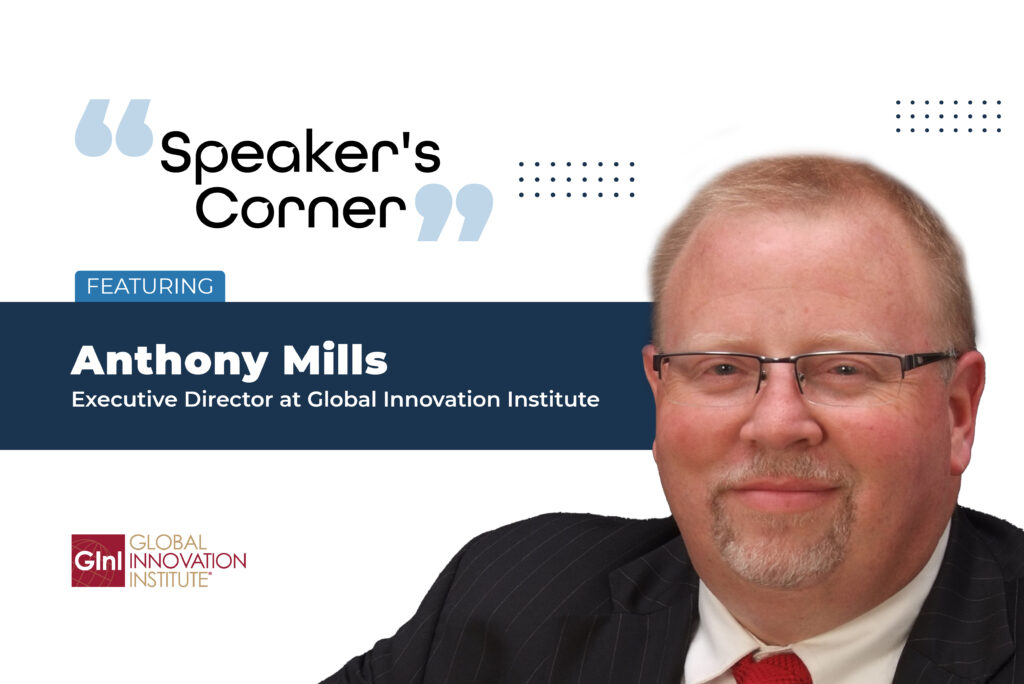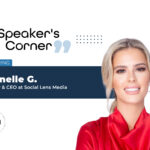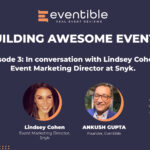Speaker’s Corner: Featuring Anthony Mills, Executive Director at Global Innovation Institute
Tell me about the Global Innovation Institute…
I serve as the Executive Director of Global Innovation Institute, or GInI (www.gini.org).
GInI is the world’s leading professional certification, business accreditation, and membership organization in the field of innovation. We operate globally through a network of Authorized Providers around the world – active in North America, Europe, Africa, the Middle East, and Asia. Our mission is to help both individuals and organizations develop the capabilities they need for their organization to operate highly effective corporate innovation programs.
I’m also the Founder & CEO of Legacy Innovation Group (www.legacyinnova.com), a globally-recognized strategic innovation consulting firm working with clients around the world. I also consult with and for a number of other partner firms around the world, including in London, Munich, Dubai, Abu Dhabi, and Riyadh.
The HR industry is vast, what are the challenges that affect your business? Are you engaging in any kind of problem solving?
Our biggest challenge is in finding the level of skill we need in our staff to help us drive the business forward (being smaller, that puts a lot on the shoulders of every contributor).
The COVID-19 pandemic has mandated change in the way we go about business and operations. How has this time influenced you? What are the trends you see within the sector?
The COVID-19 pandemic saw a major shift in how our community operated, given that so much the Learning & Development industry shut down during that time. This meant that far more people pursued certification via self-study than via the traditional exam-preparation training courses. Some of those courses went virtual – but not nearly the volume that was in person previously.
The nice thing is that as we are rebounding, we are keeping that direct-to-consumer base while also picking back up our traditional training-via-provider base, which is driving major growth.
What is your biggest objective as a speaker?
My first biggest objective as a speaker is to connect with the audience in a way that drives home a message that both informs and inspires them – so that afterwards they can take that insight and inspiration back to their work and actually produce some real impact from it.
My second biggest objective as a speaker is to create connections with business leaders that result in them inviting me into their organizations to help address certain challenges further.
Could you share with us the points of discussion (the input that you provided) during the panel(s) at the Hacking HR 2022?
I was a Panelist on two panel discussions – Empowering Intrapreneurs at Work and Strategic Foresight: Becoming an HR Futurist. In the first panel – Empowering Intrapreneurs at Work – we related what it meant to be an intrapreneur inside a large business organization, many of the challenges and hurdles they face, and, and how to create environments and spaces that made it ‘safe’ to be an intrapreneur, and how to get one’s ideas really heard and supported inside the organization – including the types of organizations who tend to welcome and embrace this more so than perhaps others.
In the second panel – Strategic Foresight: Becoming an HR Futurist – we addressed the role of Strategic Foresights in the business and discussed how HR could help both encourage and facilitate this as a more formal activity inside the business, particularly in light of preparing our organizations for the future and helping them to be a part of shaping and owning that future.
As a leader, what are the factors both professional and personal that drive you? What keeps you going?
Having the ability to make an impact in people’s and organization’s lives while empowering them to be able to really pursue and deliver game-changing new innovations for the world. I love being in the ‘center’ of it all, as a central figure in the evolution of this craft.
In your opinion, do digital events give you a similar level of feedback/result vis-à-vis the live versions? What would you say were the biggest pros and cons of both formats? Which do you prefer?
We’re social beings, and so I don’t think there’ll ever be any substitute for being live and in-person, flesh-to-flesh, with other enthusiastic professionals. But, virtual events do in fact beat ‘no events’ by far – we do at least get to interact and discuss matters that are salient to each of us.
The biggest pro of virtual is convenience – no travel… I can ‘be there’ immediately and then when I’m done I’m already back home. This means I can attend nearly an unlimited number of events – many different ones in the same day even – all over the place.
The biggest con of virtual is not being able to eat with people… to sit down and break bread together… to discuss stuff over coffee, or debate a topic over a beer, and so on. I really, really miss that element of it.
The biggest pro of being in-person is being able to absorb body language and by do doing develop much deeper human connections with people – connections that tend to last longer because you really got to know people – especially if you were able to go share a meal together (you will remember people for far longer if you eat together than if you don’t).
The biggest con of meeting in-person is the time and expense required for the travel, and the impact that has on work productivity otherwise.
What is your take on in-person events? Do you prefer in-person events as compared to hybrid or virtual? How soon do you think in-person events would return?
While the formatting and execution of virtual events has come a really long ways over the past five years, they are still no match for in-person events. And so, all things being said, I much prefer in-person events – especially when I can share a meal with the people I am meeting. I see the world literally desperate for in-person events right now – people are sick and tired of virtual events – and so I’m seeing them really come back in full force now in 2022.
In your opinion, what are the top 3 challenges to returning to ‘In-Person’ events? How could we mitigate risks?
Really just guaranteeing safety from infectious diseases – in particular airborne diseases like COVID and the Flu. I think the only real countermeasure here is requiring everyone who attends to be vaccinated and present proof of full vaccination. Not only does this create real safety, just as importantly it gives everyone in attendance much more peace of mind that they don’t have to worry (so much) about getting infected by their fellow attendees. I think that is really the extent of what we can – and should – do.
I am not a fan of masking at these events, because it takes away from being able to use body language and facial expressions in our communications with one another – and that is one of the big reasons of being in-person in the first place.
Eventible.com is a review platform specially catering to B2B events. Given how review-driven our lives have become today, do you think reviews will bring in a level of transparency to the events industry? Would you rely on event reviews from other speakers if you had to make a speaking decision?
Yes – absolutely reviews will bring transparency – and that will hold event organizers accountable to organizing and delivering high caliber, engaging events. So, yes, I think this offers tremendous value!
I would rely on these event reviews so long as I knew for certain they weren’t being ‘gamed’ – like where the organizers hire a company to go submit a bunch of fake positive reviews to artificially drive up their ratings (like is purportedly sometimes done on Amazon.com by unscrupulous retailers).
If we think the reviews are ‘gamed’ then, we won’t trust them. But if we somehow have believable assurances that this isn’t happening, then maybe we will trust and use them for this sort of decision-making.
Finally, do you have a favourite mocktail or drink? We’d be delighted to know.
I’m a craft beer aficionado. I really enjoy barrel-aged imperial stouts, but also love old ales, strong ales, barleywines, and Belgian quads.
About Anthony: Anthony Mills is the Executive Director of Global Innovation Institute (GInI), the Founder & CEO of Legacy Innovation Group, and an associate at several global consulting firms around the world. Anthony is a globally sought–after thought leader on such areas as emerging markets, proactive growth strategies, corporate innovation, open innovation, workplace experience, the future of work, entrepreneurship, product design, and design thinking. His work has had a deeply profound and lasting impact on organizations all over the world.
To view Hacking HR 2022 on Eventible, click here. To write a review, click here.





Comments are closed.